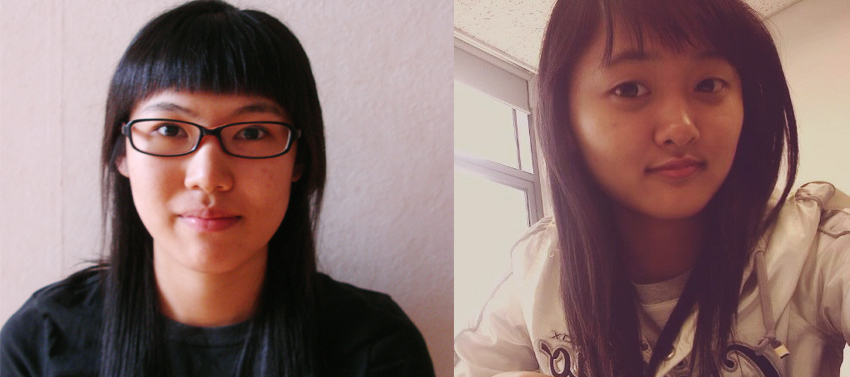
While it is often the case that students who are older than their peers face difficulties deciding how to address their classmates and seniors, some students face a similar problem because they are younger.
The students who were admitted to Ewha this year were mostly born in the year 1988 or 1989. They have turned twenty this year and felt the transition from their teens to their twenties. However, Kwon Young-hee (Molecular & Life Sciences, 1) and Yoo Ji-hae (Mathematical & Physical Sciences, 1) are among those few who got accepted into Ewha at the age of eighteen.
Kwon and Yoo are both friends who have a lot in common. The path that they took ever since first grade, when they entered elementary school a year earlier than students their age, was the same. The two students then got accepted into a science high school and graduated a year early, a frequent path for students attending science high schools. Thus, Kwon and Yoo are two years younger than most students who got accepted into Ewha this year, or even three years younger than classmates who got accepted after retaking the suneung, the Korean college entrance exam.
“When I was a student at Kangwon Science High School, I worried whether students like me, who graduate a year earlier, could actually do well in university in terms of both academics and relationships,” said Kwon. She knew the importance of friendship but worried that other students would not accept her as a friend but treat her as a younger sister.
Kwon first worried about how she would address other students. “If I just called them by their names, they would think I was rude because I am two years younger than they are. But if I spoke to them like I was speaking to a sunbae (a Korean word used to address seniors) I did not think we would be able to share a deep friendship,” said Kwon.
Students were first surprised to find Kwon and Yoo two years younger than they at the freshmen orientation, and Yoo says she saw their reaction in their eyes. “I could tell that they perceived me differently than others. That was when I felt once again that age does act as a standard in people’s minds.”
However, those problems were gradually overcome. “They asked me about graduating a year early and got to know me as myself rather than as a younger person,” added Yoo. “I call my friends unni, (a Korean word meaning “sister” that is often used for females to address older females) but that’s it. They are my friends and sometimes we forget who is younger or who is older,” said Kwon.
Sometimes, people who are a little younger or older than those who surround them tend to be more conscious of their age when others do not really give a second thought. Kwon recounted the story of a meeting (a blind date) that she experienced last semester. “At a blind date last semester, a guy suddenly asked me how old I was. I thought he had guessed that I was a year younger and I would have to explain why I was younger than other freshmen. But when I asked him how old he thought I was, he asked me if I was born in the year 1987. I was surprised at myself then, as I realized that I was self-conscious about my age,” said Kwon.
The invisible line crossed between students of different ages cannot be said to have been completely erased, especially in Korean society where forms of address vary according to relative age. So, Kwon and Yoo say that the friends they feel closest to are students like themselves who entered university earlier than others.
However, Kwon and Yoo, along with other students who have entered university earlier than others, believe that their age will not act as a big barrier in academics, relationships, or society. “It is true that the structure of the Korean society does give students like us pressure for the reason that we are younger than the majority, and hierarchy is important. But, if you can develop your potential and determination to the fullest, age should not act as a barrier either way,” said Kwon.

